
In the second of our daily briefings on the Spring Meetings, we focus on the challenges facing the global economy as the IMF announced cuts to the global growth outlook. We also take a look at the risks posed by inflation to financial stability, how countries can benefit from digitalization in a sustainable way, and much more.
Global economic prospects have been severely set back and inflation is set to last for longer, largely because of Russia’s invasion of Ukraine, the IMF’s Chief Economist Pierre-Olivier Gourinchas told a press briefing on the latest World Economic Outlook. The IMF revised down its projection for global growth to 3.6% in both 2022 and 2023, reflecting the direct impact of the war on Ukraine and sanctions on Russia, with both countries projected to experience steep contractions. Gourinchas said that aggregate output for advanced economies will take longer to recover to its pre-pandemic trend.
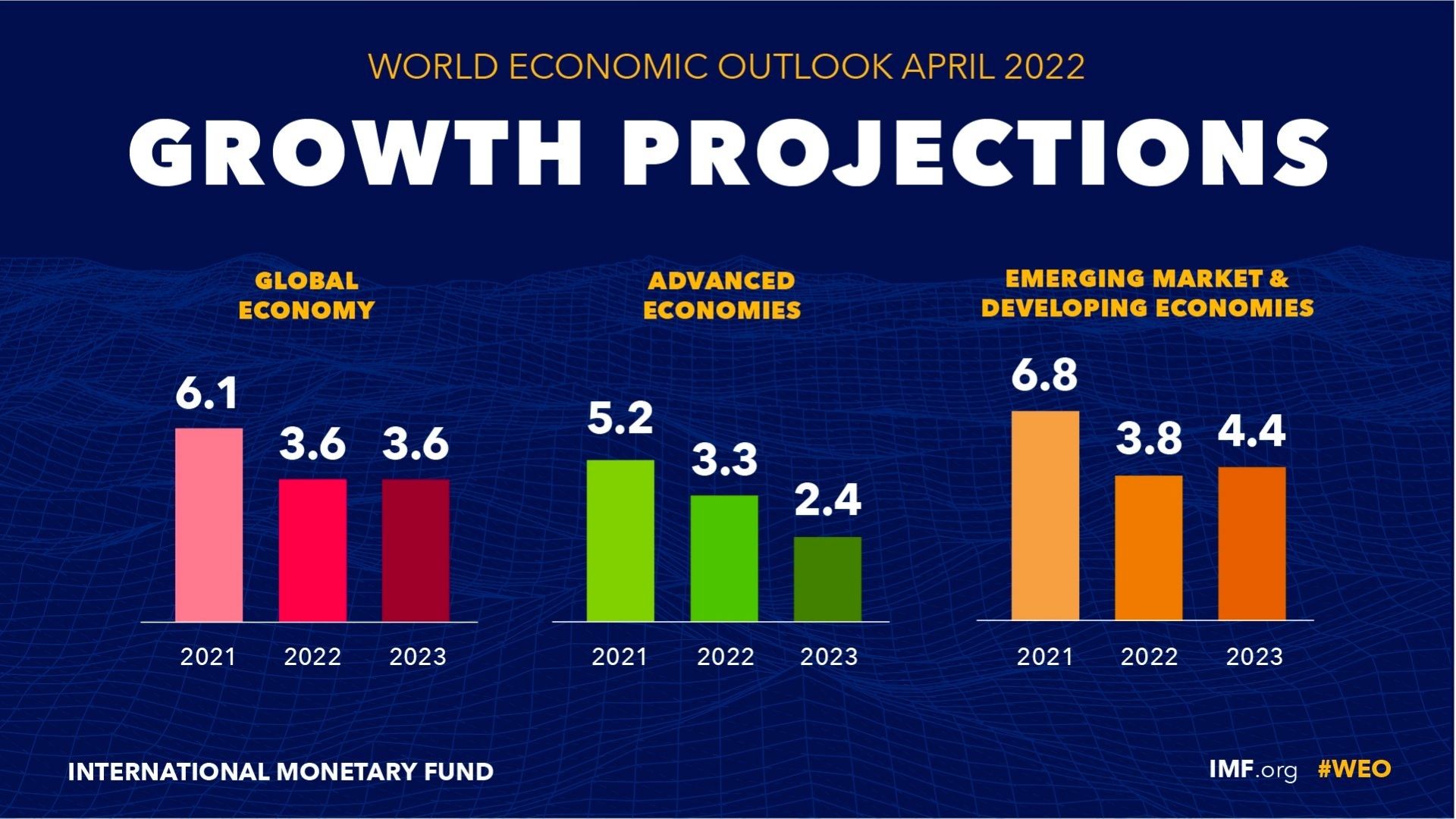
The divergence that opened up in 2021 between advanced and emerging market and developing economies is expected to persist, suggesting some permanent scarring from the pandemic. The war also increases the risk of a more permanent fragmentation of the world economy into geopolitical blocks with distinct technology standards, cross-border payment systems, and reserve currencies, Gourinchas said.
Inflation is the single most important challenge of our time and central banks should raise interest rates aggressively to bring it back down to target, said Tobias Adrian, the IMF’s Monetary and Capital Markets Department Director during a press briefing on the latest Global Financial Stability Report. Consumers currently expect prices to continue to rise rapidly in the short term before inflationary pressures start to recede over the medium term, Adrian said. But he added that this may change.
Compared to the January forecast, the IMF projects global economic growth to slow to 3.6% in 2022 and 2023, largely reflecting the direct impact of the war in Ukraine and sanctions on Russia. More in the latest World Economic Outlook.
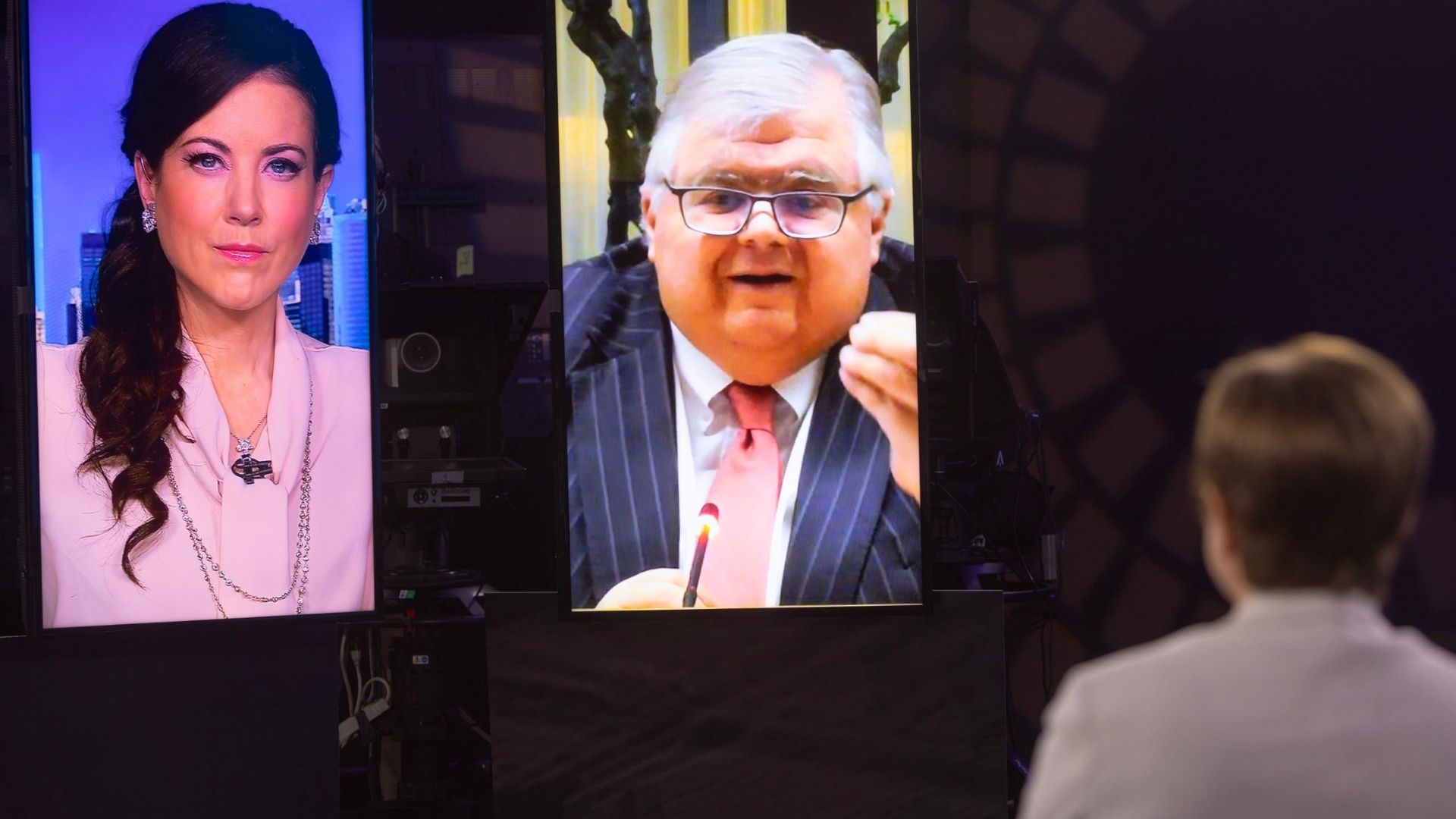
Agustín Carstens, General Manager of the Bank for International Settlements, joined Kristalina Georgieva for a discussion moderated by CNN International’s Julia Chatterly on how countries can reap the benefits of digitalization in a sustainable fashion. Georgieva said that crypto is a growing risk because of the size and speed with which crypto assets are expanding. Since the Russian invasion of Ukraine, crypto assets have expanded by 9%. She further emphasized the need to find a policy approach that is proportionate to the size and risk they represent.
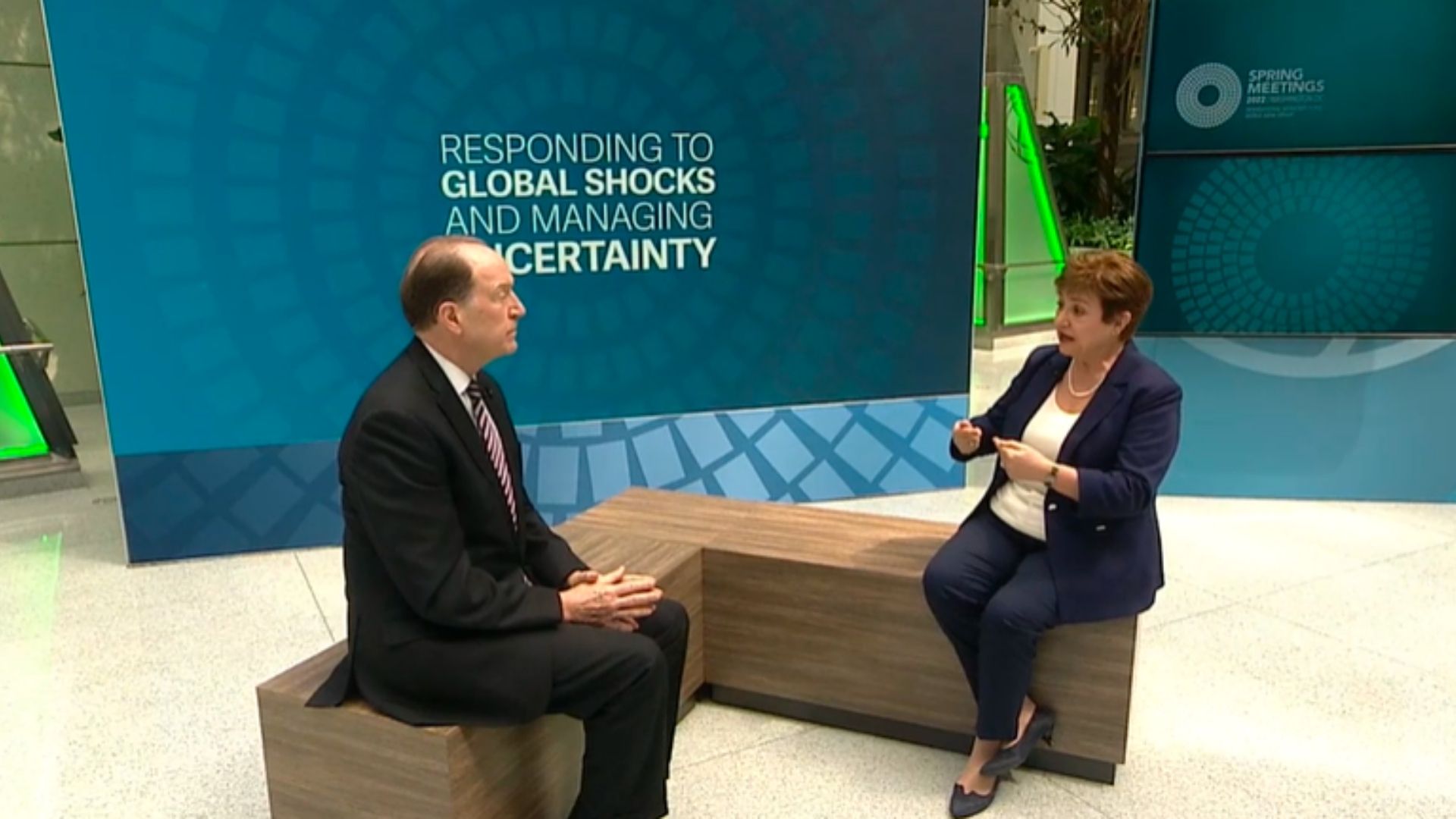
The war in Ukraine is a serious setback for the world economy that is impacting countries near and far, IMF Managing Director Kristalina Georgieva said in a wide-ranging conversation with World Bank Group President David Malpass. Georgieva said that a speed-up in inflation, driven by supply-chain interruptions, notably in China, but also by higher prices for energy, food, and metals was undermining recovery around the world. “What is very troubling is this negative impact of the war goes to so many places,” she said on the same day that the Fund announced steep downgrades to its global outlook. “Spillovers are more painful for those that were further behind in the recovery.”
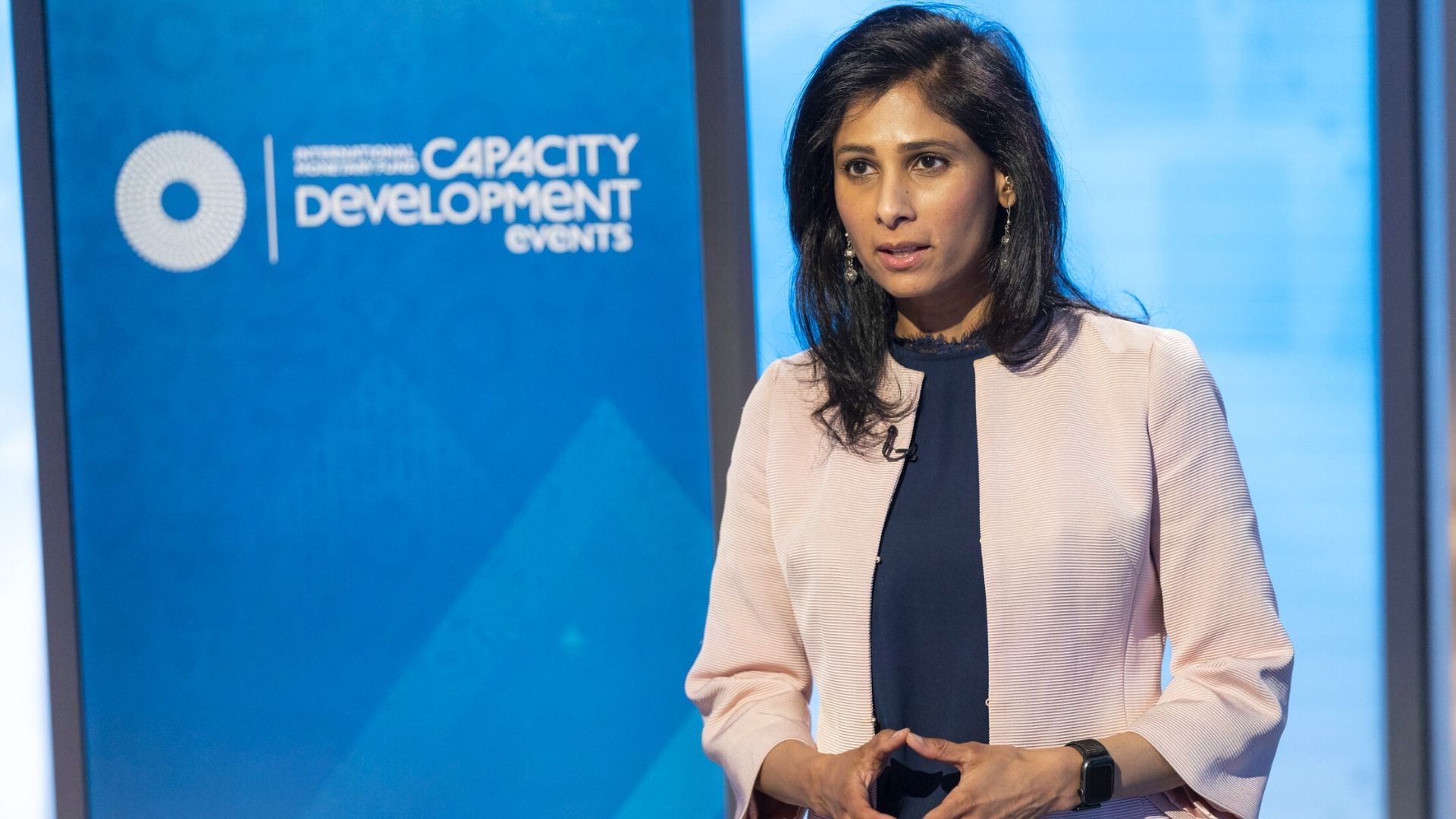
Climate change has emerged as one of the most critical macroeconomic and financial challenges and, as such, is at the very heart of the IMF’s work. Part of that work includes launching an open online course and other training resources on climate change economics, all aimed at expanding member countries’ capacity to translate their climate targets into practical policy actions. Watch this session, opened by Gita Gopinath, the IMF’s First Deputy Managing Director, to get a peek inside the Fund’s new free online course on the Macroeconomics of Climate Change.
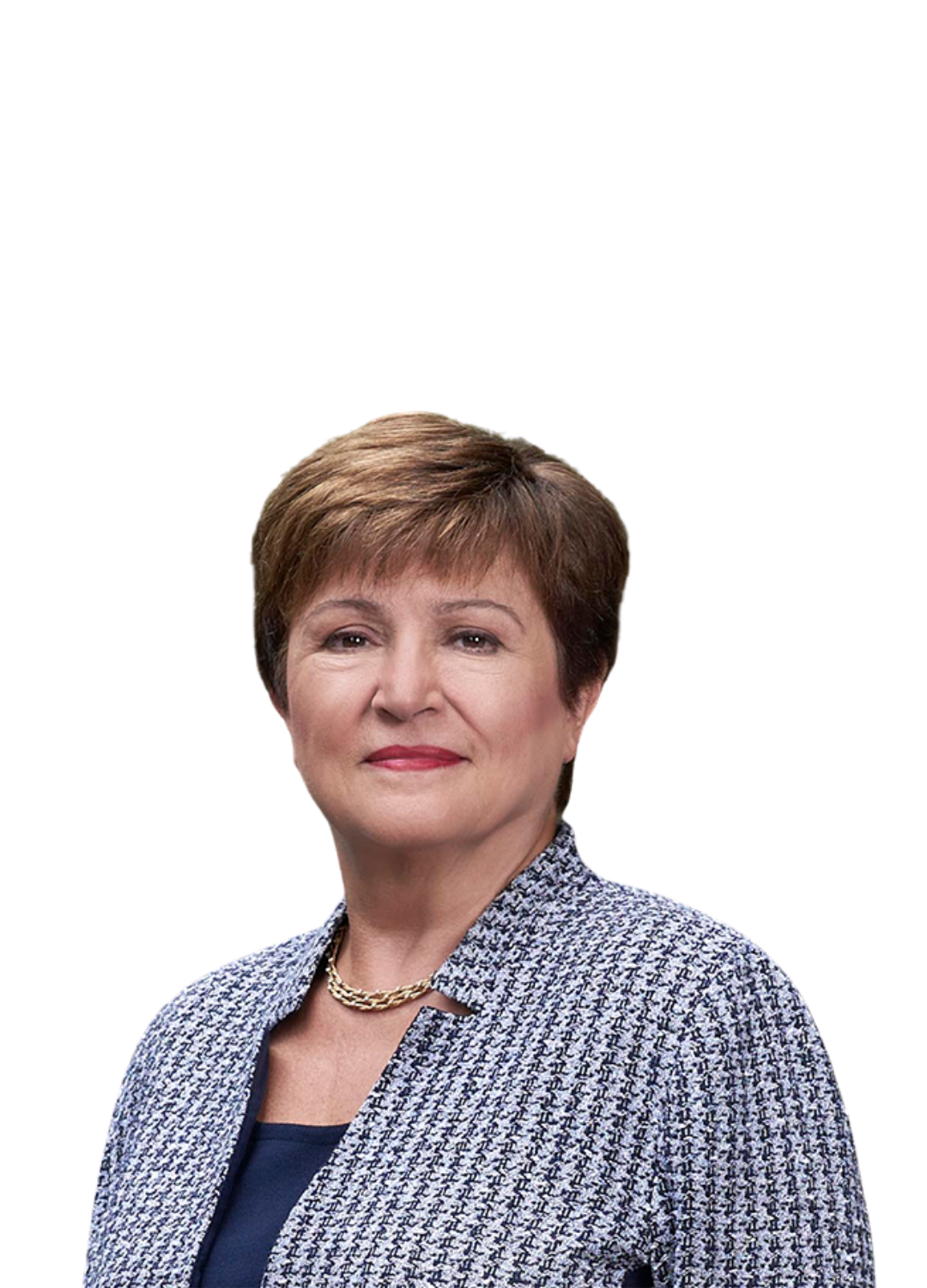
Largely because of Russia’s invasion of Ukraine, we are seeing a growth downgrade for 143 countries representing 86% of global GDP.
Growth is down, inflation is up; people’s incomes are down, hardship is up.
KRISTALINA GEORGIEVA, MANAGING DIRECTOR, IMF
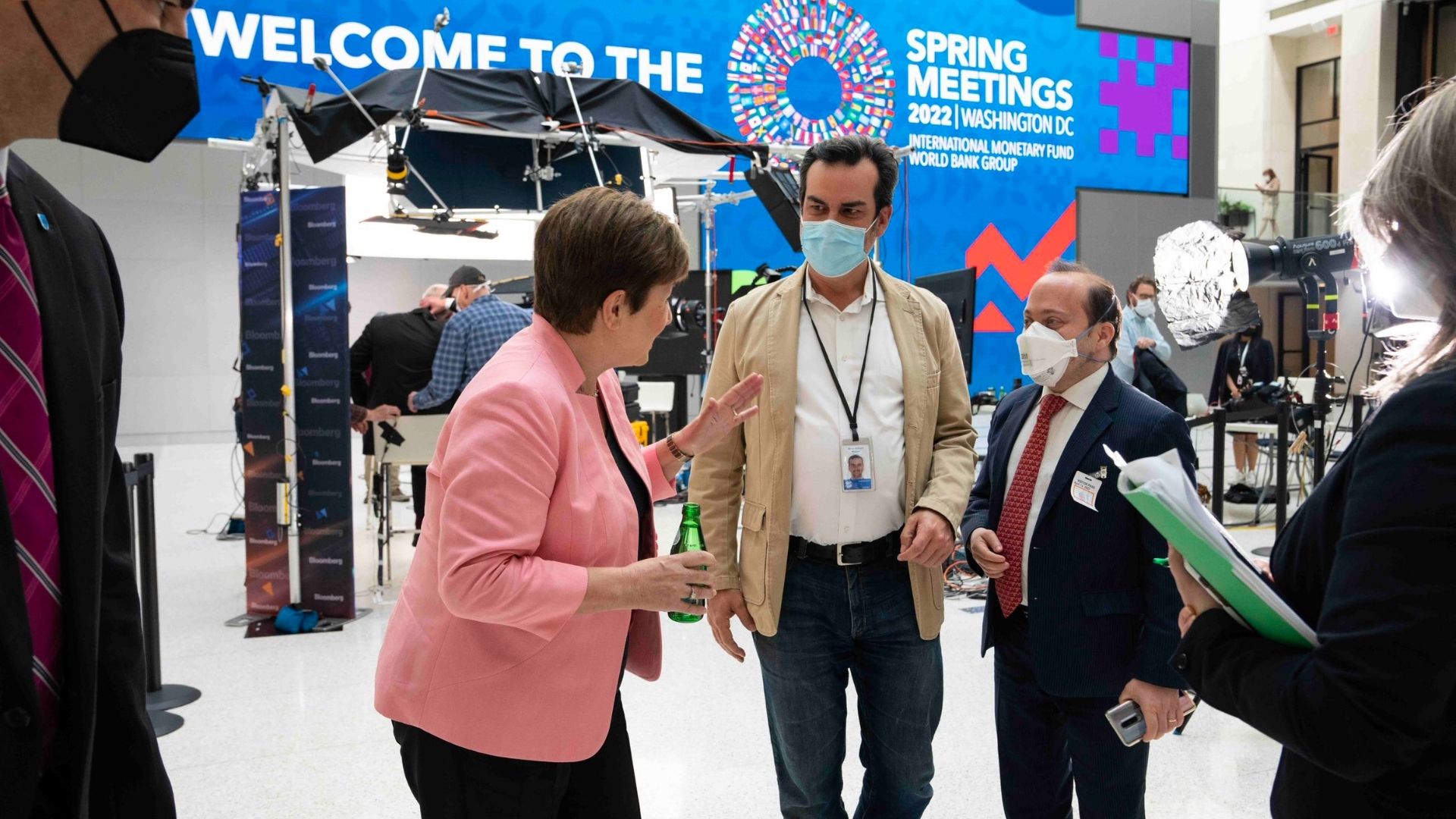
Managing Director Georgieva talks to journalists and staff after HER INTERVIEW WITH Bloomberg
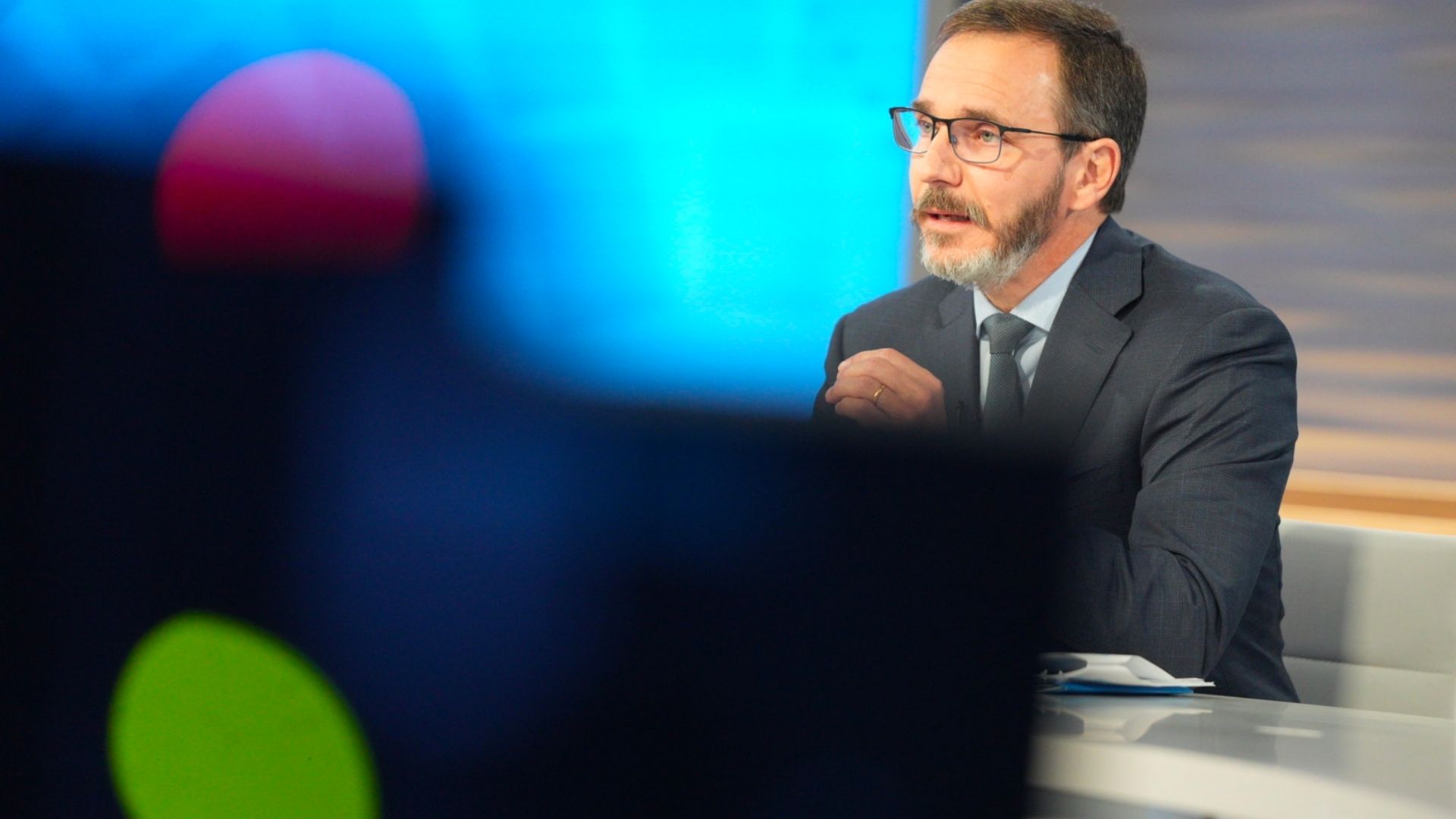
CHIEF ECONOMIST Pierre-Olivier Gourinchas makes his debut during the World economic outlook press conference.
Sign up to our special daily briefing to help guide you through our April 2022 Spring Meetings—pointing to all of the key publications, live events and more.
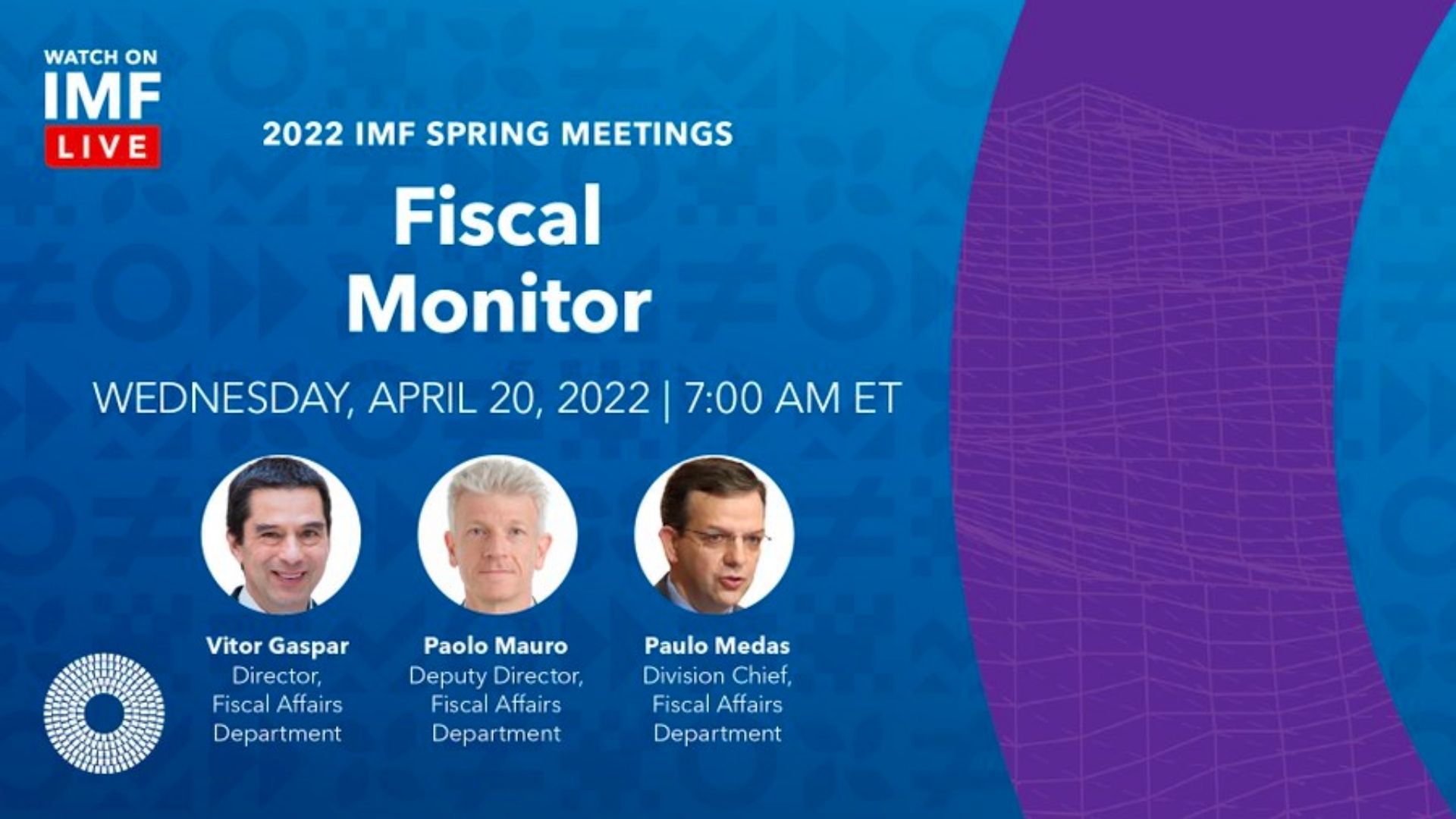
Press briefing and launch of April 2022’s issue of the Fiscal Monitor.
Event Details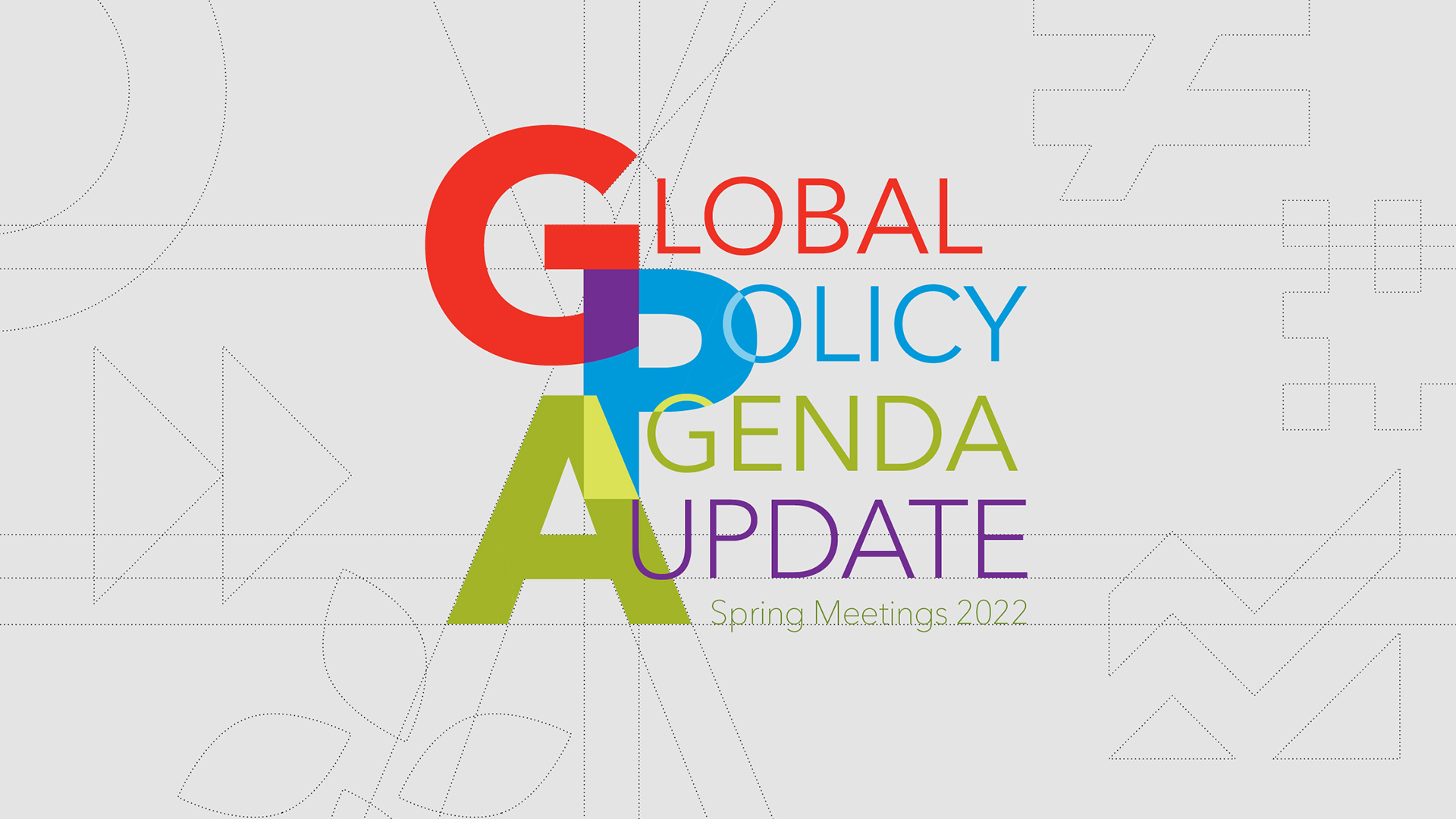
IMF Managing Director Kristalina Georgieva gives an overview of the global economy and institutional priorities.
Event Details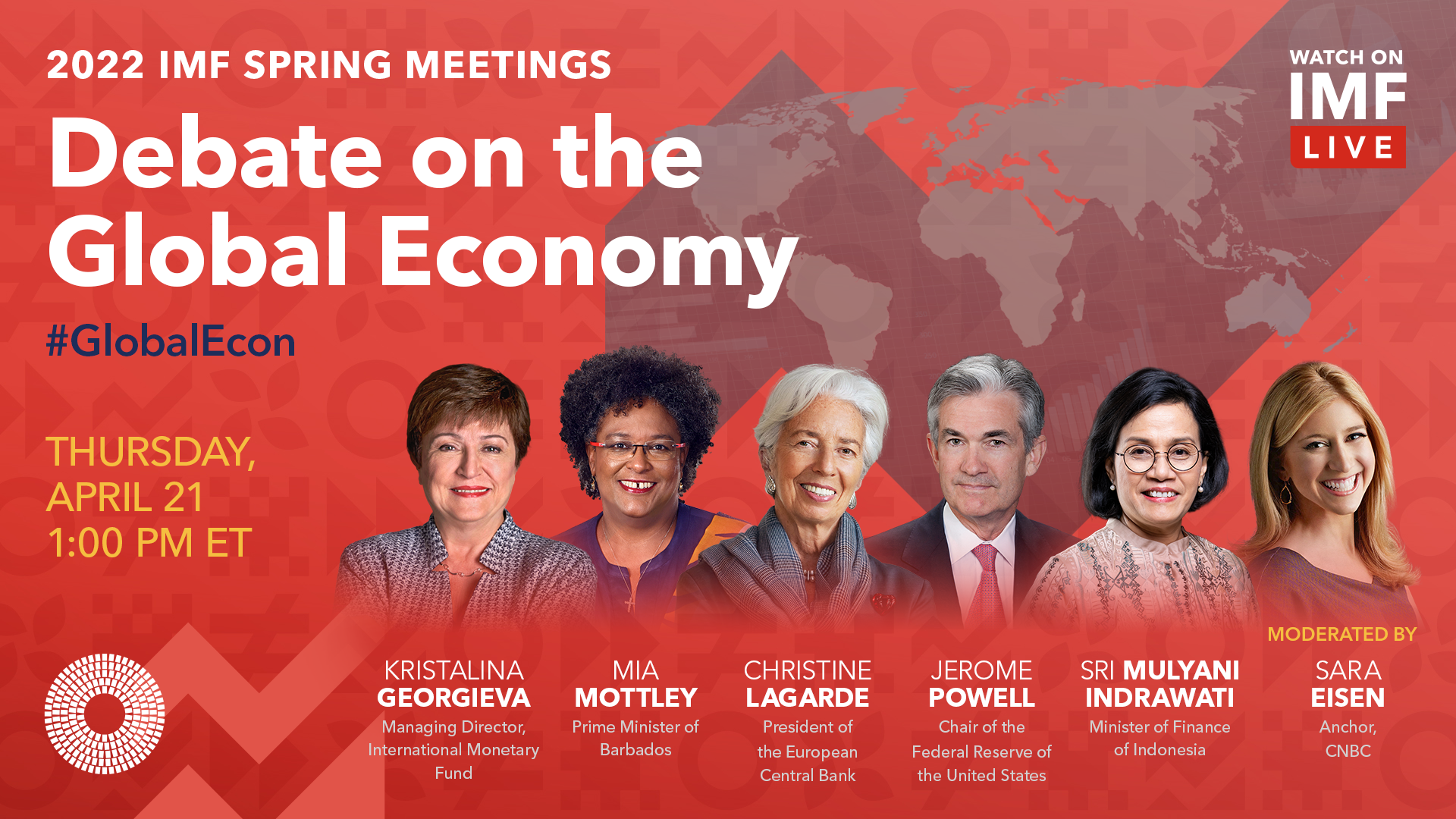
Watch our debate on how policymakers should respond to inflation, rising debt, the impact of the war in Ukraine, and the pandemic.
Event Details